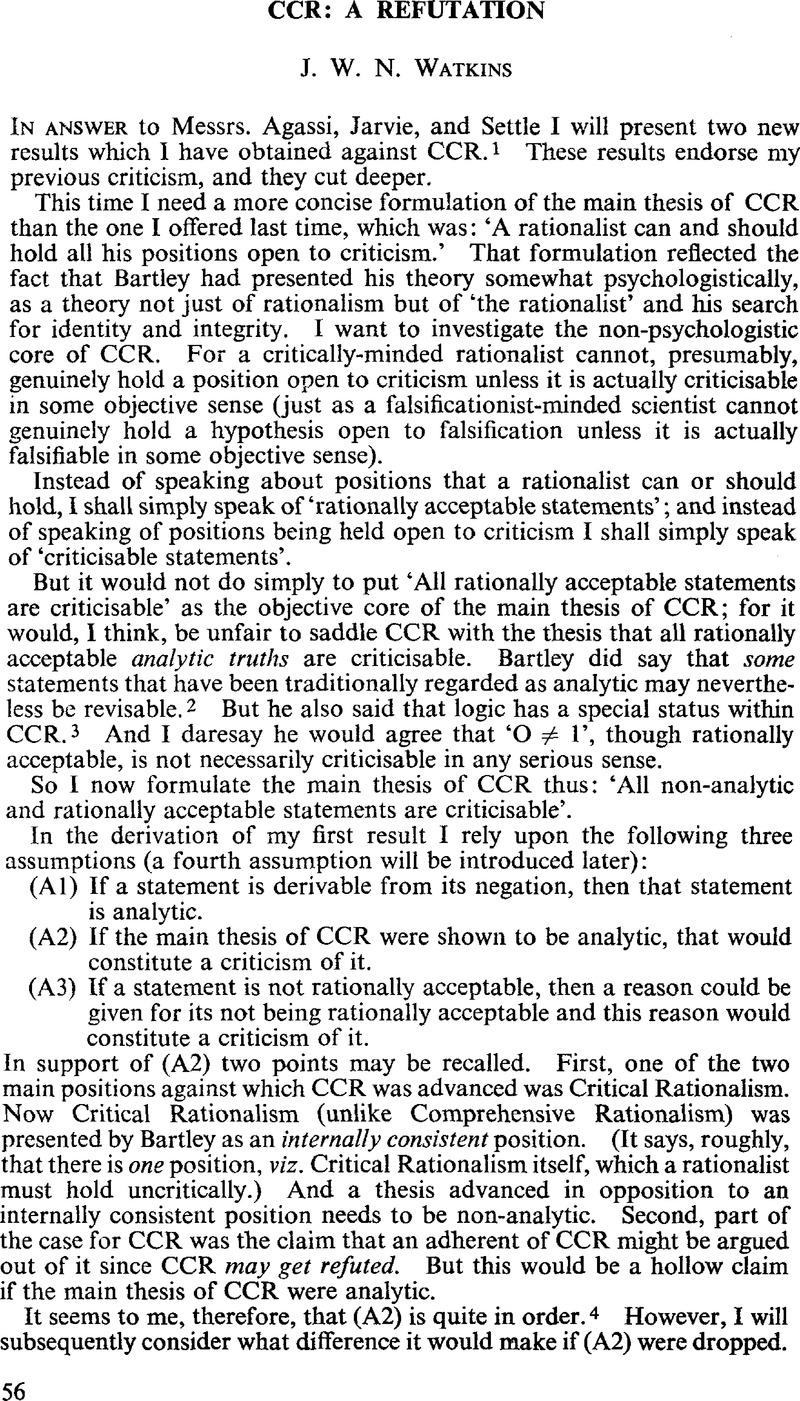Published online by Cambridge University Press: 25 February 2009

1 I arrived at the first of these two results after reading an unpublished paper, entitled ‘The Modal Liar: Paradox in Self Referential Falsifiability’, which its author, JOhn F. Post, kindly sent me. I will indicate my debt to him at the appropriate place. I have also benefitted from several helpful discussions with him.
2 Bartley, W. W., The Retreat to Commitment (New York, 1962), p. 173.Google Scholar
3 Ibid., pp. 161/71.
4 If someone objects that it is too ad hoc I offer the following generalisation of (A2): ‘If a statement S can play its intended role within a theory T only if S is not analytic, then to reveal S to be a concealed tautology would be a criticism of S qua component of T.’ This kind of criticism, which aims to show that a would-be synthetic thesis is not false but empty, has often been employed in ethics, especially against ethical naturalism. See, e.g., Moore, G. E., Principia Ethica (Cambridge, 1903), pp. 11f,Google Scholar and Hare, R. M., The Language of Morals (Oxford, 1952), pp. 92–3.Google Scholar
5 For a sustained essay in meaningful and true self-reference see the delightful dialogue ‘Self-Reference and Meaning in Ordinary Language’ in Popper, K. R., Conjectures and Refutations (London, 1963), pp. 304–11.Google Scholar
6 In any case, I am not arguing that CCR is paradoxical. I claim that (2) is just false, not that it is false of true and true of false.
7 I failed to take this (rather obvious) step in my 1969 paper. I realised that it could be taken from reading the unpublished paper by John Post mentioned in footnote1 above.
8 ‘… an important evaluatory problem is not to demarcate scientific from non-scientific theories but to demarcate critical from uncritical theories…’ (Bartley, W. W. III, ‘Theories of Demarcation Between Science and Metaphysics’, in Problems in the Philosophy of Science, ed. Lakatos, and Musgrave, , Amsterdam, 1968, p. 49.)Google Scholar
9 This journal, above, p. 77.
10 See Bartley, , The Retreat to Commitment, pp. 126f.Google Scholar